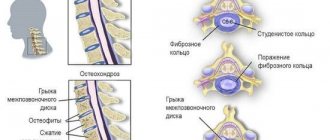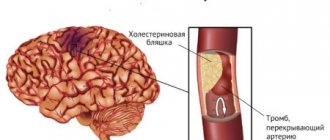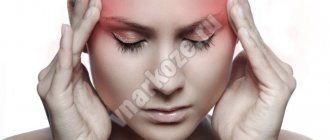Post-alcohol depression is an emotional and psychological condition that develops against the background of alcohol dependence. In terms of its symptoms, it is similar to withdrawal syndrome, but these conditions have fundamental differences.
While a severe hangover is often accompanied by physiological symptoms, depression is characterized by psychological problems.
The main danger of a psychological disorder is that its manifestations can be relieved by drinking alcohol. It turns out to be a vicious circle. Excessive consumption of alcohol leads to poor health and psychological problems, but you can only get rid of negative signs with a new portion. Ultimately, a chronic form of alcoholism develops.
The relief that comes with drinking more alcohol is deceptive. It is temporary and after a short period of time the unpleasant symptoms return. For this reason, experts note that post-alcohol depression becomes chronic more often than other forms of disease.
On a hormonal level
Hormones determine emotional state.
Neurotransmitters are responsible for balance and calm - bioactive substances of neurons that transmit impulses to cells. Under the influence of toxins, their activity decreases. Serotonin and endorphins give a feeling of joy. If they are injected, the blood-brain barrier will not allow synthetic substances to quickly penetrate nerve cells. When taking alcohol and drugs, happiness hormones are produced in large quantities and immediately penetrate the membrane of neurons, due to which a person quickly falls into euphoria. As soon as their level decreases, a feeling of depression arises, and the person tries to restore it with another glass of doping. Realizing his dependence on alcohol, he develops apathy, turning into post-alcohol depression. But that is not all.
Ethyl alcohol is considered a psychotropic substance, paralyzing the sensitivity of nerve endings and increasing the production of the stress hormone norepinephrine. Once in the blood, ethanol molecules begin to quickly break down. Decay products migrate throughout the body with the blood. The brain suffers the most, where due to their negative effects, the transport of oxygen into cells is disrupted, which leads to the death of neurons.
Causes
Ethanol is a poison for the human body. Even in small doses, its breakdown products negatively affect the functioning of the brain and nervous system as a whole.
In an organism affected by toxins, metabolic functions are disrupted, and the organs of the digestive system suffer.
But still, the nervous system is most susceptible to the influence of poisons. Its defeat causes mental disorders.
Unfortunately, alcoholism (and alcoholic depression, respectively) often manifests itself as a result of a genetic predisposition to it.
Alcohol-related depression can appear not only as a result of prolonged drinking, but also with regular drinking in moderate doses. Only in this case the nervous system is destroyed somewhat more slowly.
Genetic predisposition plays an important role in the tendency to excessive alcohol consumption, which is why people with a family history of alcohol addiction develop depression more often. The main cause of alcoholic depression is persistent disruption of the brain and central nervous system after poisoning with substances formed in the body during the processing of ethanol
The main cause of alcoholic depression is persistent disruption of the brain and central nervous system after poisoning with substances formed in the body during the processing of ethanol.
Even a small amount of alcohol leads to apathetic states, increased secretion of dopamine by the brain, disruption of the production of serotonin and other neurotransmitters that affect emotions.
An imbalance of hormones causes depression and the appearance of symptoms characteristic of them.
Alcohol abuse causes a decrease in the volume of brain matter and pathological transformation of neurons. As a result of such processes, personality degradation is observed, a sharp deterioration in cognitive abilities is observed, human behavior changes - it becomes inadequate and unpredictable.
This is how physical and mental dependence on ethanol develops; together they form the basis of alcoholic depression.
Another cause of depression, and quite common, is psychological problems that a person cannot solve on his own and tries to do this with the help of alcohol.
Having refused to use it, he again faces reality, but now he has to act without a stimulant. Internal tension leads to a sharp deterioration in a person’s mental and physical condition, so many alcoholics are unable to endure a difficult period, return to alcohol again, or develop depression.
Experts identify many reasons for the development of alcoholic depression:
- Metabolic disorders;
- Nervous system functional failures;
- Violations of intraorganic activity;
- Short-term mental disorders caused by the toxic effect of alcohol on organic structures.
Even drinking alcohol in moderation weakens the nervous system structures, disrupts their activity, as a result of which alcoholics become overly irritable and aggressive.
A cycle of successive factors appears: dissatisfaction with one’s own life → increasing irritability and aggression → drinking → dissatisfaction with life….
A complication of alcoholism is alcoholic depression that develops against its background after prolonged abuse of alcoholic beverages. Most often occurs in older people.
The disease appears after the patient gives up alcohol. It has been noticed that the longer a person has been addicted, the more severe the mental disorder manifests itself.
The main causes of alcoholic depression are:
- metabolic disease;
- disease of internal organs (for example, liver);
- psychological barrier in connection with giving up alcohol.
In the presence of a provoking factor, the disease develops at an accelerated pace. These factors include:
- conflict situations;
- stress;
- etc.
During alcoholic depression, many patients may relapse and continue drinking. A relapse can cause:
- injury;
- suicide attempts;
- accident;
- progression of the disease into chronic alcoholism.
Reasons for low mood when quitting drinking
The main reasons for the development of depressive states or the aggravation of those that existed previously when giving up alcoholic beverages:
- Psychological dependence on alcohol. A person who has been drinking alcohol for a long time gets used to using it as a remedy for bad mood, depression, anxiety, and poor health (often provoked by alcohol itself). Therefore, the inability to distance oneself from reality with the help of already habitual alcohol worsens a person’s mood, and during the period of getting rid of alcohol addiction, the alcoholic may rush to other extremes, find other ways to experience pleasure, for example, start gambling.
- Alcohol withdrawal syndrome. This is the so-called alcohol withdrawal, the main symptoms of which, with proper treatment, go away quite quickly, but residual disorders, such as anxiety, depression, can persist for a long time.
- Consequences of alcohol intoxication. With excessive and long-term consumption, alcohol negatively affects the functioning of the brain: it disrupts the functioning of certain zones, affects the sensitivity of the receptors of a number of hormones, and can lead to alcoholic encephalopathy, in which intelligence, memory, attention are significantly affected, sleep is disturbed, and somatic abnormalities are observed. Over time, some disorders may become less pronounced, but in most cases they persist throughout life.
It is also important to consider that some alcoholics start drinking due to the presence of primary depression.
It is this that becomes the trigger that triggers addiction , and when a person gives up alcohol, depressive symptoms, which were partially drowned out by regular drinking, come to the fore.
Therefore, it is important to begin treatment for concomitant depression as quickly as possible, otherwise the person is unlikely to be able to get rid of alcoholism.
Why do you feel bad the day after drinking alcohol? Psychologist about alcoholic depression:
How to find new friends? Find out about this from our article.
Treatment
The biggest difficulty in the process of therapy and in selecting its regimen is the patients’ failure to realize that depression is not the root cause of alcohol addiction: it is alcohol abuse over a long period of time and sudden withdrawal that become the causes that trigger the development of the disease.
In this case, it is necessary to treat the patient for alcoholism. To overcome the disorder, the desire of the patient himself to end the addiction, self-confidence, a clear awareness that the right decision is being made, and regular work on oneself are required. The patient also needs to realize that a complete refusal to drink alcohol at the initial stage can aggravate the disease, intensifying the harmful symptoms. Often, to overcome the disease, people come to the help of rehabilitation centers - special institutions that use balanced methods of adaptation to society.
With a mild form of depression, which develops against the background of withdrawal symptoms, it can go away on its own, without the need for drug treatment. Currently, an integrated approach with consistent medical care for moderate severity of the disorder has a high chance of success. Severe depression after a long period of heavy drinking is quite difficult to treat and requires a responsible approach.
Modern treatment of alcoholic depression using an individual approach is as follows:
- taking pharmacological agents;
- psychotherapy;
- physiotherapy procedures.
Pharmacological treatment
First of all, when treating with medications, it is necessary to detoxify the patient’s body to ensure complete removal of the toxic breakdown products of alcohol. To relieve anxiety, which is typical during the abstinence period, a short-term course of strong tranquilizers is used.
To overcome melancholy, antidepressants are used, which can reduce the symptoms of the disease in the shortest possible time and, upon completion of the course of therapy, get rid of the state of depression completely. It is also required to carry out treatment that will be aimed at reducing the craving for drinking alcohol with drugs that are selected separately for each addict. The patient should also take medications that eliminate metabolic disorders and restore water and electrolyte balance. For alcoholic depression, help with vitamins B1, B6, PP and C, which are administered intramuscularly, will be indispensable.
For this disorder, drugs are used that will have a restorative effect on the blood circulation of the brain and small vessels affected by alcohol. In addition, it is recommended to take phospholipids, which will increase the liver's ability to detoxify and normalize its normal functioning. Alcoholic delirium (delirium tremens), expressed by delirium, chills, manifested by various kinds of hallucinations, requires immediate hospitalization of the patient in a psychiatric hospital, since such a situation can lead to fatal consequences.
Psychotherapy
Psychotherapy, conducted individually or with a group, will allow the patient to find the true meaning of life, teach him to experience joy in every moment, and help him gain independence from alcoholic beverages. When working with a patient, treatment is aimed at educating him that the desire to forget with the help of alcohol is a false path, and the elimination of the disease must be carried out using completely different methods that do not cause harm.
Physiotherapy
Physiotherapy has a good restorative effect. The use of artificial sleep, acupuncture, electrical stimulation, and inductothermy has a positive effect on the patient’s condition. The high therapeutic effect of the procedures and their safety make it possible to awaken the body’s own resources, activating the immune system, stimulating biochemical processes and initiating the natural regeneration of damaged systems.
Content:
- Types of depression after and during heavy drinking
- Why depression occurs
- Symptoms of depression in alcoholics
- How to get out of depression after drinking
- Why depression after binge drinking needs to be treated
If the binge drags on, depression is not long in coming.
It is an abnormal mental state that changes the drunkard’s perception of the world. The disorder can be temporary or chronic, and it is very important to prevent its progression. According to statistics, approximately 40% of addicts experience depression caused by taking high doses of alcohol. This is a fairly high figure. It best demonstrates that ethanol changes the psyche and has a detrimental effect on the brain.
Today, the relationship between drinking and mental health problems has been recognized by doctors from all over the world. This problem is treated as one of the most important in the field of healthcare, including its treatment, study of symptoms and ways of influencing the outcome of the pathology.
Will giving up alcohol help?
Experts do not recommend abruptly giving up alcohol; this should be done gradually
If a hangover causes a feeling of fear and the inability to sleep are frequent phenomena, this condition can develop into a chronic mental disorder. Relatives and friends of patients often ask doctors why depression and fear after drinking can begin at any time, and in severe cases they also appear during a sober lifestyle. The answer to this question is very simple: because the main depressant is alcohol, no poison or chemical can compare with its destructive effect on the psyche.
After drinking alcohol, anxiety does not go away instantly. When asked how long depression lasts after quitting alcohol, psychologists answer differently. It all depends on the severity of the condition, as well as on the patient’s temperament. Choleric and melancholic people are most susceptible to panic; their anxiety lasts longer than that of calm phlegmatic people and balanced sanguine people. In severe cases, panic can last for several weeks.
Temporary abstinence from alcohol helps to gradually reduce the frequency of depressive panic attacks. If the patient leads a correct lifestyle, fears will completely disappear. However, for this to happen, a person must have a stable motivation for sobriety. He must consciously come to complete abstinence from the main depressant - drinking and want his own healing, sincerely wish to stop drinking. If an alcoholic does not consider himself sick, is not going to do anything and does not want to fight drunkenness, giving up alcohol, on the contrary, will increase anxiety, fearfulness, aggressiveness and suspicion.
The duration of a panic attack depends on temperament
Attention! If a panic attack that accompanies a hangover occurs to a man or woman in the presence of relatives, the most common mistake relatives make is introducing a complete ban on alcohol. Experts say that abruptly giving up alcohol during withdrawal symptoms can only worsen the condition and even cause death.
A person suffering from a hangover must be given a small dose of alcohol to temporarily stabilize the condition and alleviate a panic attack. This dose should be small, otherwise intoxication will occur again with all the negative consequences.
Hangovers and intoxication do not always go away on their own; long-term drinking bouts require the help of a specialist.
If there are signs of an impending panic attack, psychologists recommend taking a deep breath and opening a window or, if possible, going out into the fresh air. If such a condition occurs in a friend, relative or stranger, you should help him yourself or call a doctor. If panic is accompanied by delusions, auditory or visual hallucinations, the patient should be hospitalized immediately.
Why depression develops
At the moment, experts identify the following reasons for the development of this condition:
- Metabolic disorders;
- Malfunctions of the central nervous system;
- Disturbances in the functioning of the whole organism;
- Short-term mental disorders caused by the influence of toxic substances on the body.
In addition, depression can also be caused by simple life circumstances that anyone can encounter, for example, troubles at work, in the family, or simply in their personal life. Women are largely susceptible to depression due to alcohol abuse.
Even if you drink alcohol in moderation, it can gradually weaken the nervous system and disrupt its functionality. As a result, the person becomes aggressive and irritable. Thus the circle is closed. At first there is dissatisfaction with one’s life, then increasing aggression and irritability, then alcohol consumption, and then again disappointment in life.
Possible causes
The influence of ethanol metabolites is the cause of the development of intoxication, as a result of which the central nervous system cannot function normally. This process reflects the mechanism of development of depression in alcoholism.
- Under the influence of ethanol, the activity of GABA inhibitors increases, which can lead to the development of apathy.
- Increased activity of dopamine receptors is the cause of manic euphoria.
- Disturbances in the functioning of the setorinergic system lead to disruption of the synthesis and transportation of neurotransmitters, which are responsible for the emotional state.
Chronic alcoholism
Chronic alcoholism is characterized by a decrease in the number of functioning neurons, their modification and damage due to oxidation. The deterioration of thinking abilities and the formation of inappropriate behavior are accompanied by personality degradation. This symptom complex leads to the development of alcoholic depression.
Varieties
In clinical psychiatry, it is customary to conditionally divide alcoholic depression into two types:
- short-term deterioration of the condition that occurs against the background of ethanol intoxication after excessive drinking;
- severe depression associated with alcohol withdrawal.
After excessive drinking
Depression after alcohol occurs after excessive consumption of alcoholic beverages and is combined with symptoms of hangover syndrome. Along with headaches, nausea and fatigue, a person may feel depressed, in a gloomy mood and blame himself for drinking. Oxidation of ethyl alcohol contributes to the development of hypoglycemia, which leads to the development of muscle weakness, depressed mood, and decreased concentration. Changes in the functioning of the cardiovascular and nervous systems are also possible: nervousness, tachycardia, chills.
Depression after drinking usually goes away on its own after a few days. To correct the patient's condition, the use of medications is not required.
After giving up alcohol
This variant of mental disorder is characterized by a more severe course. Therefore, patients with this type of post-alcohol depression require close monitoring by qualified medical personnel. As a rule, it occurs after stopping a long binge for 3-4 days. The initial manifestations include the development of withdrawal syndrome. Often, this variant of alcoholic depression develops in people with stage 2 or 3.1 of alcoholism.
Quitting alcohol
Physiological manifestations of this condition include:
- tremor;
- hyperactivity of the sympathetic nervous system;
- convulsions.
The patient’s condition at this moment is characterized by a deep psychological crisis, which is characterized by a complete loss of the ability to experience pleasure (anhedonia), lack of life vector, goals and loss of the meaning of existence. To a person suffering from depression after heavy drinking, the world seems exclusively in dark colors, he experiences a constant feeling of guilt, his own powerlessness and uselessness. He may be disturbed by thoughts about his past actions and fear of the future.
Depression after quitting alcohol is one of the most common causes of suicide attempts, so such patients should be in an inpatient hospital.
Symptoms of depression
Symptoms of psychological depression can easily be confused with a hangover. The latter usually occurs within 5–10 hours after drinking alcohol. Its symptoms are mainly related to the physical condition of the patient. They manifest themselves in the form of headache, nausea, photophobia, and general weakness. Post-alcohol depression affects the psychological state, so its symptoms are related specifically to a person’s psychological health. It affects your emotional state, outlook on life, attitude towards yourself and the world around you.
Experts identify a number of main signs of post-alcohol depression:
Loneliness
- Feeling depressed. It manifests itself in a feeling of guilt towards oneself and others.
- Slowing down the pace of life. When depressed, a person refuses to participate in social life.
- The pace of his vital activity slows down. A person spends more time alone, sitting in front of a TV or computer monitor.
- Slowing down the psychological reaction. A patient in a state of depression reacts slowly to the environment. A feeling of joy or other emotions does not appear on the face immediately, but gradually. The patient seems detached and thoughtful.
- Decreased self-preservation instinct. Against the background of depression, a person begins to have difficulty discerning danger. He reacts inattentively to his surroundings and can provoke an accident.
- Thoughts about suicide. With prolonged depression against the background of chronic alcohol dependence, suicidal tendencies arise. They are associated with the fact that the patient excludes himself from social life, loses connections, and becomes unclaimed professionally.
- Loss of meaning in life. Against the backdrop of a constant need for alcohol, everything around us becomes uninteresting, boring, and monotonous. Patients do not feel joy. Satisfaction comes only after drinking a new portion of alcohol.
The latter signs (lack of self-preservation, loss of meaning in life, suicidal tendencies) are signs of chronic depression and severe alcoholism. When they appear, immediate medical and psychological assistance is indicated. In such a situation, the patient is not able to cope with the problem on his own.
Causes of alcoholic depression
Severe depression after quitting alcohol is closely related to alcohol dependence, and, as a rule, can begin to develop in second or third stage alcoholics. Most often this diagnosis is made to middle-aged people; it rarely occurs in young people.
Women suffer more often, but in men, depression and anxiety last longer and are more difficult to cure. This is due to the fact that men are less likely to admit that they are dependent on alcohol and begin the necessary treatment. Refusal of medical care leads to aggravation of the course of diseases, both depression and alcoholism.
Let's determine why drinking alcohol leads to depression. Ethanol affects brain cells, disrupting the normal course of biochemical reactions. As a result, the functioning of some brain centers is disrupted.
If a person uses occasionally, then these processes are completely reversible. But if the toxic effects of ethyl alcohol do not stop due to prolonged drinking, then negative changes affect the state of the psyche.
Alcoholics experience significant personality changes, their level of intelligence decreases, and the cognitive functions of the brain are disrupted. Against this background, psychological dependence on alcohol is formed, social and everyday problems begin.
Narcologists often note signs of depression in patients during treatment. Such conditions, as a rule, occur periodically, in waves. There may also be depression and anxiety after the end of treatment, when a person returns to the same conditions that pushed him to drink.
During the period of heavy drinking, these difficulties, as a rule, become even more aggravated, and the person does not have mental strength and support from loved ones, which is why breakdowns occur. The patient again begins to seek solace in alcohol.
Depression occurs in a person due to the combined action of several factors. Certain conditions are required. Such conditions do not develop in all alcoholics, but only in those who initially have certain mental characteristics.
If a person initially has a labile psyche, he is prone to unexpected mood swings, is irritable and impatient, then when he begins to drink alcohol immoderately, these qualities increase significantly.
Why do hangover blues occur?
The main reason for the appearance of depressive symptoms during a hangover is a drop in the levels of norepinephrine and serotonin in the body. But there are factors that increase the likelihood of depression, including:
- Quantity, strength of the drink and duration of the binge. The longer a person drinks, the more severe the consequences will be. Also, a classic hangover can transform into withdrawal symptoms if a person develops an addiction to alcohol.
- Individual characteristics of the body. People with various metabolic disorders, kidney disease, liver disease, and stomach disease are more likely to suffer from various consequences of a hangover, including post-alcohol depression. The presence of abnormalities in the functioning of the nervous system and brain is also important.
- Presence of mental illness. Mental illnesses worsen mental health and increase the likelihood of developing alcoholism. When a person is not all right in life and in his head, alcohol becomes a means that helps to distance himself from troubles. But when its effect ends, the problems do not go away, so the person feels depressed and helpless.
At risk are:
- women;
- people who have primary depression or other mental disorders.
Hangover depression goes away on its own over time, but its duration depends on many factors, including the state of mental and physical health, gender, amount and strength of alcohol consumed, weight, age, and duration of alcohol consumption.
In most cases, symptoms decrease significantly after the breakdown products of alcohol disappear from the body, that is, within several days.
In some cases, symptoms persist for several weeks or months .
Alcoholism as a manifestation of depression. About the possibility of helping to cope with this problem in this video:
Types of alcoholic depression
Alcoholic depression is conventionally divided into two options:
- Short-term distress following ethanol intoxication following excessive drinking;
- Severe depression after heavy drinking.
Depression after excessive drinking
The first variant of the disorder, which occurs in a mild form, occurs after excessive consumption of strong drinks and manifests itself in combination with a hangover syndrome. Along with unpleasant physiological effects, the person is in a depressed, gloomy state, and experiences a feeling of guilt and remorse for the drunkenness that took place. Ethanol oxidation reactions lead to hypoglycemia (a decrease in blood glucose concentration), which provokes fatigue, muscle weakness, melancholy, and decreased concentration. Often, apathy is accompanied by irrational anxiety and irritability. Magnesium deficiency and, as a consequence, the resulting blocking of calcium channels causes nervousness, rapid heartbeat, and chills.
Genetic predisposition plays a significant role in the development of this disorder. Some people, regardless of the quantity and quality of drinks taken, almost never experience depression or hangover, while others constantly suffer from its painful symptoms. This “inequality” is explained by the genetic ability to produce the enzyme alcohol dehydrogenase, which stimulates the intensive conversion of ethanol into acetaldehyde (a source of acetic acid).
This type of alcoholic depression in most cases goes away on its own within a few days and does not require treatment.
Depression after quitting alcoholic beverages
The second variant of the disorder is quite complex, occurring in a severe form, requiring close attention from specialists and qualified medical care. Alcoholic depression occurs after a long binge in the first 2-5 days after stopping the use of alcohol-containing drinks and is marked by withdrawal syndrome. As a rule, this mental illness occurs in persons suffering from stages 2 (3 degrees of severity) and 3 stages of alcoholism.
Physiological manifestations of depression are aggravated by somatic symptoms of withdrawal syndrome: tremor, hyperactivity of the sympathetic nervous system, convulsions. A person in this state experiences a deep psychological crisis, characterized by a complete absence of positive emotions, loss of the ability to experience pleasure, loss of the meaning of life and lack of goals in life. A person suffering from alcoholic depression perceives the world in dark tones, and is haunted by feelings of guilt, worthlessness and uselessness. He feels remorse for his past actions and feels despair when thinking about the future.
“Post-withdrawal” depression after binge drinking is a serious hidden threat. Having completely given up alcohol, the individual outwardly leads a normal, full-fledged lifestyle and returns to everyday life. However, having lost the opportunity to escape from monotonous everyday life into a state of euphoria through alcohol, a person is deprived of imaginary joy and peace, finds herself again face to face with problems, experiences negative emotions and dissatisfaction with life. A protracted psychological crisis after giving up alcohol in isolated cases goes away on its own, radically changing a person’s personality, often leading to catastrophic, irreversible actions. When choosing a “substitution” therapy, an individual can go to other extremes: start using drugs, become a gambler, put his life in danger by doing extreme sports, have a promiscuous sex life, or develop “chronic fatigue syndrome” in his professional activities.
Depression after drinking is often the cause of suicide attempts, so this condition requires immediate intervention from medical professionals.
Depression after alcohol in women
The causes of depression that develops against the background of regular drinking can be very different:
- accumulated stress and problems of everyday and personal nature, dissatisfaction with life;
- age crises;
- short-term mental disorders caused by constant alcohol intoxication of the body;
- disorders of the nervous system;
- dysfunction of certain organs, metabolism, etc.
Women are even more likely than men to be interested in how to get rid of alcoholic depression. This is explained by the fact that, due to natural weakness and a different constitution, this painful condition occurs in women several times more often and is more severe than in men, lasting longer. For example, in men, depression after heavy drinking lasts 3-4 days, or at most 7 days, but in the weaker sex this condition lasts for weeks, sometimes months.
Indeed, you need to study how to get rid of a bad mood in life, look for a way out, and contact medical specialists, since alcoholic depression is often recognized post-factum, i.e. after suicide, which happens quite often.
According to statistics, such conditions often form the basis of suicide, and are preceded by dissatisfaction, pickiness, constantly bad mood, hypochondriacal complaints, tearfulness and irritability.
A person’s psycho-emotional state is directly related to the amount of biologically active substances (neurotransmitters) that transmit nerve signals. By affecting the body, the decomposition products of ethyl alcohol cause a deficiency of the neurotransmitter serotonin. This effect causes various disorders. This includes post-alcohol depression.
Ethanol increases the amount of biogenic amine, which is an aggression hormone. With a subsequent strong decrease in its concentration in the body, a state of apathy, depression and muscle weakness arise. This is why depression can occur after drinking.
The processes of assimilation and decomposition of ethyl alcohol occur much faster than the removal of hazardous substances from the body. The largest amount of toxins is found in the brain. As a result, its cells die and the nutrition of neurons is disrupted.
Alcoholism and alcohol abuse can cause depression. Likewise, depression can worsen alcohol addiction. Research confirms that in most cases, pathology occurs in people over 35 years of age due to prolonged intoxication with ethyl alcohol.
Any alcoholic drink with a minimum concentration of ethanol can provoke psychological illnesses.
Very often the pathological process is severe and is accompanied by suicidal states of the patient. Sometimes this is supplemented by delirium, self-recrimination, and a feeling of uselessness and worthlessness.
Symptoms and signs
The main ones are:
- reluctance to contact people to the point of complete isolation;
- Bad mood;
- mental and physical inhibition;
- state of anxiety;
- sleep disorders;
- apathy;
- thoughts of suicide;
- memory problems;
- lack of appetite;
- irritability and aggression;
- unwillingness to enjoy life.
The syndrome is accompanied by certain symptoms. That is why the development of pathology can be determined by human behavior. In most cases, during the course of the pathological process, the patient experiences a lack of mood. He becomes sad and anxious.
Important. If a person is addicted to alcoholic beverages for several weeks, this does not indicate the development of depression.
But those around him are advised to keep a close eye on him.
After a person stops drinking alcohol, he may experience the development of lethargy. This condition can last from several hours to several days.
A person’s attitude towards life is even and emotionally uncolored. After a certain time, there is a lack of ability to rejoice.
After refusal, the patient feels emptiness and meaninglessness in life.
Depending on a person’s general well-being, depression can be of varying degrees of severity and is accompanied by pronounced symptoms:
- insomnia;
- retardation of movements;
- difficulty in thinking processes;
- sadness, sadness;
- slow gait;
- inability to perform usual work activities;
- loss of sexual desire;
- depersonalization;
- social isolation;
- mood swings;
- constant feeling of despair and anxiety;
- disruption of the liver and digestive system;
- severe vomiting and nausea;
- suicidal thoughts and suicide attempts.
After quitting drinking alcohol
Most often, a person is not able to give up alcoholic drinks due to weakness of will. In a state of severe intoxication, the patient loses the ability to adequately assess the situation, feel, loses self-control, and becomes aggressive.
Repeated binge drinking is the basis for problems in the family, at work and with friends, as well as with health.
It is with alcoholic depression that a person is most prone to injury and suicide. After completely abstaining from alcohol for a long time, the patient is recovering. A mental disorder can go away on its own or with the help of treatment prescribed by a doctor.
Diagnosis is made based on the identified symptoms. Tests are necessary to determine the health damage caused by alcohol. Treatment of diseases caused by alcoholism is carried out depending on the doctor’s recommendations.
People use it to relax, relieve psycho-emotional stress and fight fatigue.
So why does almost every person who abuses alcohol develop alcoholic depression?
Often this condition appears with a hangover, after drinking a large amount of alcohol the day before. It is extremely difficult to get rid of it, and even antidepressants are ineffective.
Very often, depression of alcohol origin is part of the withdrawal syndrome and prevents you from getting out of binge drinking.
In this case, it is almost impossible to combat its symptoms at home - which is why it is better to consult a doctor.
The severity of psycho-emotional disorders directly depends on how long a person has been drinking, how much he drank and what strength the alcoholic drinks were. Naturally, the symptoms of a hangover will be less severe than after a long binge.
Quite often, depressive syndrome prevents people from leaving a kind of vicious circle. It would seem that the binge has stopped, but after some time it starts again, and getting rid of drunkenness becomes more and more difficult.
The alcoholic tries to find solace in drinking, but puts himself in an even more difficult position, aggravating the course of the disease with a new dose of ethanol.
Chronic alcoholism leads to structural changes in the brain, which affects the intellect and psycho-emotional state of a person.
Mood and alcohol
If a person understands what processes occur in the body as a result of giving up alcohol, why depression occurs, and how to deal with it correctly, then his chances of defeating the “green snake” will increase significantly.
Alcohol depression can occur not only in chronic alcoholics, but even after a one-time “grand” binge or after several days of drinking alcohol. This phenomenon is easier to deal with. It does not lead to the development of chronic alcoholism, unless, of course, the “patient” begins to constantly be treated with strong drinks.
Drinking alcohol for depression to improve mood only helps for a while, and after that the condition becomes even more severe.
Despite the fact that alcoholic drinks have a toxic effect on the body, immediately after consumption they can relieve the feeling of stiffness, make a person more sociable, improve mood, and increase sexual desire.
These processes are artificially launched in the body by enhancing the synthesis of endorphin and serotonin. In a normal, sober state, these hormones are not able to penetrate the brain. But after alcohol enters the bloodstream, the protective natural barrier is destroyed, and morphine-like substances begin to be produced from brain neurons dissolved by alcohol.
To answer the question of whether it is possible to drown a bad mood with alcohol and how to get rid of prolonged depression, let’s consider how exactly ethyl alcohol affects mood.
As you know, our high spirits, a sense of joy, a surge of strength and energy depend on the presence of a number of important hormones in the body:
- endorphins;
- serotonin;
- adrenaline and norepinephrine;
- oxytocin, etc.
Under the influence of external factors, for example, alcohol, hormones lead a person to absolute joy or to severe depression.
Thus, alcohol increases the permeability of neuron membranes, as a result of which serotonin, the famous “happiness hormone,” first occurs. Ethanol also stimulates its production and increase in concentration in our body. But soon the level of serotonin in the hypothalamus decreases, and in order to return everything to the way it was before, the person drinks even more.
However, at the same time, the content of the “rage hormone” – norepinephrine – increases in the blood. Soon its level drops - and it is then that a person begins to feel persistent mental depression, developing into a depressive disorder.
We suggest you read: How to shrink your liver at home
Here is the answer to the more than common question of why there is depression after alcohol. To put it in a nutshell: alcohol is a powerful depressant, which makes you pay for half an hour of pleasure and a wonderful mood with a prolonged withdrawal syndrome and worsening depression.
You can try as much as you like to get out of this pathological condition on your own, look for and try on yourself all sorts of ways to combat depression, but if you are really interested in the result and improving your own life, contact a specialist.
It is he who will be able to identify the true causes of binge drinking and depression, carry out the correct diagnosis and prescribe therapy adequate to the patient’s condition.
Classic treatment consists of:
- detoxification of the body;
- drug therapy with antidepressants;
- psychotherapy, the purpose of which is to increase motivation, harmonize relationships in the family, form and increase stress resistance, increase self-esteem, etc.
- physiotherapy – individual selection of a set of physiotherapeutic activities and procedures designed to improve the functioning of the nervous system, relieve chronic fatigue, increase immunity and vitality, etc.
Why does alcoholism cause depression?
Depression due to alcoholism is a problem caused by many factors. At the physiological level, it all starts with hormones.
In a normal state, a person has stable neurotransmitters, which are responsible for the transmission of impulses between neurons, balance, pleasure and much more.
When drinking alcohol, their activity is disrupted, endorphins begin to be artificially produced in large quantities, which leads to short-term euphoria.
Important! Post-alcohol depression is often confused with withdrawal syndrome (the moment of giving up alcohol). However, in the first case, usually only the psyche suffers, and in the second, well-being also worsens on the physical level.
A hangover after taking large doses of alcohol is characterized by a drop in glucose levels, which manifests itself in a decrease in strength and muscle weakness. This effect can last for about a day, depending on the condition of the human body.
The first mention of this diagnosis appeared at the beginning of the 20th century under the term “alcoholic melancholia.” Its severity is directly dependent on the duration of alcohol consumption and the stage of alcoholism.
The average age of people suffering from this disease is 35–40 years. This problem is less common among young people.
It is difficult to say for sure how long alcoholic depression lasts. This condition may go away within 2 weeks, or may linger for a month. Severe stages of alcoholism are characterized by symptoms that do not go away for years. Also during the course of the disease, the gender of the patient plays an important role.
Women are more likely to suffer from depression that accompanies alcoholism. But in men the disease is more complicated. It is often complicated by the appearance of suicidal thoughts and actions, since men are rarely ready to seek qualified help. It is usually provided by narcologists, psychiatrists, and psychotherapists.
The expression “wine makes glad the heart of man” can be found even in the Bible, but excessive consumption of alcoholic beverages causes the opposite effect.
But this condition goes away quite quickly, even without appropriate treatment. It’s another matter when depression is caused by heavy drinking.
And this condition usually appears after giving up alcohol. Post-alcohol depression can occur in both men and women who abuse alcohol.
What happens in the body after drinking alcohol? Ethanol can affect human hormonal levels. Three hormones are responsible for good mood and emotional stability in the human body: serotonin, norepinephrine and endorphin.
Serotonin, also called the happiness hormone, promotes a surge of strength and energy, giving a feeling of happiness and bliss. Under the influence of alcoholic drinks, a surge of serotonin occurs and a large amount of it is released into the blood.
As a result, all of the above conditions are intensified many times over. But during a hangover, serotonin levels drop, hormonal balance is disrupted, which often results in depressed mood and loss of energy.
Endorphin is a hormone that is often called the hormone of joy. These neurotransmitters can reduce pain syndromes, like narcotic drugs, and cause a feeling of euphoria.
Alcohol significantly increases the production of endorphins, and subsequently, with hormonal imbalance, the synthesis of these neurotransmitters is also disrupted. The result is apathy, indifference to oneself and to everything that happens, stress and depression.
Often, a lack of endorphins leads to alcohol and drug addiction, since in order to relive the feeling of euphoria, a person reaches out to the substances that cause it.
general information
Alcohol-related depression does not only occur with a hangover.
They can be divided into:
- Hungover. They are observed in people who have drunk too much alcohol, occur during a hangover, and go away on their own over time when the body removes waste products.
- Depression when quitting alcoholic beverages. They occur in people who have an alcohol addiction and are trying to get rid of it. About 20-60% of alcoholics suffer from various types of depressive conditions, which worsen after giving up alcohol, since it has been a means for a long time to forget, to temporarily distance themselves from the symptoms of depression, but they do not know how to cope with it in any other way and do not always want to. Chronic alcohol intoxication also has an effect.
There are many types of hormones in the human body that affect mood, well-being, cause certain emotional states and regulate a number of important processes in the body.
A person’s mood depends on the production of the following hormones:
- endorphins;
- dopamine;
- serotonin;
- oxytocin;
- adrenalin;
- norepinephrine;
- vasopressin;
- cortisol
Alcohol can affect the production of some of them, so it is classified as a depressant , that is, substances that cause depressive states.
The human brain is protected by the blood-brain barrier, therefore, if toxic substances enter , they primarily affect other organs and systems, and the brain suffers moderately or not at all.
But there are a number of drugs that easily leak through this barrier, and these include ethanol - the main component of any alcoholic drink and other liquids that people can drink to achieve intoxication (alcohol, pharmaceutical alcohol tinctures, colognes).
When ethanol enters the brain, it triggers the production of serotonin, a hormone that affects the appearance of feelings of happiness, relaxation, and pleasure.
In parallel, this hormone performs a number of other functions and is also capable of influencing the formation of dependence on alcohol if there is too much of it in the body.
This is due to the fact that it increases the activity of another pleasure hormone - dopamine. When the amount of alcohol in the body decreases, the level of serotonin also decreases, the mood decreases, so the person wants to drink more.
In addition, ethanol increases the production of norepinephrine. Therefore, when the influence of alcohol decreases, a person feels apathetic and lethargic.
Alcohol cannot help get out of depression and, on the contrary, significantly aggravates the condition of a person who takes it regularly in the hope of feeling better.
Depression is a suitable foundation for the development of various kinds of addictions, including alcohol, and getting out of such depression will require a lot of effort, because it will be necessary to treat not only the mental disorder, but also alcoholism.
Also, alcohol should not be consumed in parallel with antidepressants, as this increases the likelihood of side effects and reduces the effectiveness of the drug.
Alcohol, in principle, cannot be combined with taking medications, since it, together with the medication, creates a huge burden on the liver .
Read about the symptoms and treatment of delusions of jealousy in men here.
About the interaction of alcoholism and depression in this video:
Post-alcohol depression and methods of its treatment
Alcohol addiction or simply drunkenness destroys a person not only physically, causing various diseases of the digestive system. A drinking person’s psyche changes and his personality is destroyed.
Causes
Regular alcohol consumption leads to various physical health problems. A person's metabolism is disrupted and liver dysfunction develops. lack of vitamins; the nervous system reacts to chronic alcohol intoxication.
Taking large doses of alcohol each time provokes a significant surge of energy, for some people it is unbridled joy, for others it is strong unmotivated aggression or other mental activity.
And after about 10 hours, the body begins to experience devastation, decreased energy production, so a person develops a feeling of self-doubt, depression, nervousness, and various fears, which lead to the development of depression. The slightest trouble, any conflict or domestic quarrel causes an absolutely inadequate reaction.
If post-alcohol depression develops in an ordinary person who has consumed a large dose of alcohol, but is not a chronic alcoholic, then it does not require special treatment and goes away within a few days or weeks.
Symptoms
Feeling unwell 10 hours after excessive drinking, expressed in malaise, dehydration, headache, nausea and other dyspeptic disorders, should not be confused with post-alcohol depression.
All these symptoms are characteristic of a hangover, which relates to physical health. And any depression is a mental health disorder.
In this case, a person experiences a depressed state, he is constantly in a bad mood, motor activity decreases, mental activity is inhibited, mental reactions decrease, a feeling of guilt appears, and the instinct of self-preservation is dulled.
But he does not experience pleasure from life, he is bored and uninterested in everything that happens around him, he does not see the meaning of life, therefore, in the absence of treatment, he inevitably breaks down, trying again to experience the sensations that alcohol gives, to feel the fullness of life, a burst of energy, to get rid of from the feeling of one's own inferiority.
Alcoholic depression is often accompanied by acute manic-depressive psychosis and other types of depression. Only qualified medical care can bring a chronic alcoholic out of this state.
Treatment options
As a rule, treatment is most successful if the patient himself is determined to break the habit of alcohol abuse. One way or another, salvation is possible only with a complete renunciation of drunkenness. At the beginning of therapy, this will, of course, aggravate the patient’s condition, but without this step, treatment is unlikely to be successful. Both the patient and his relatives are usually warned about this in advance.
Drug treatment consists of the use of modern antidepressants, and whether these are amine uptake blockers, MAO inhibitors, monoamine receptor agonists, or some combination of them with tranquilizers and hypnotics, the doctor decides individually in each specific case. Typically, antidepressants help cope with anxiety, guilt, and insomnia. A person’s mood and self-esteem improve, but after stopping medications, any stress in everyday life can lead to a relapse of alcohol addiction and associated depression.
To prevent relapses, the patient needs to undergo a course of psychotherapy, individual or group, the goal of which is to form the right attitude towards life, learn to enjoy it without alcohol, and establish new social connections. Often, in the treatment of alcohol dependence, hypnotic influence is used to instill a stable aversion to alcohol.
Consequences
How long does the blues last and what can it lead to?
Despite the fact that hangover depression does not last long, its danger should not be underestimated, especially if the person has a history of mental disorders.
It can lead to:
- Auto-aggression , that is, aggression directed at oneself. A person scratches, cuts himself, bites until he bleeds, leaves burns. The characteristics of the manifestation of auto-aggression depend on many factors, and in most cases, auto-aggression itself is not a sign that a person has suicidal tendencies: usually people who do this do not want to commit suicide. They may do this, for example, out of a desire to punish themselves. At the same time, auto-aggressive moods are rarely observed in mentally healthy people who simply overdid it with drinking and do not have an alcohol addiction.
- Attempts to commit suicide. Some people commit suicide during hangover depression. But suicidal tendencies are rarely observed in mentally healthy people, even after drinking alcohol.
Also, hangover depression can become the foundation for the development of alcohol dependence and real depression , which requires long-term treatment.
What to do when life is boring? Find out the answer right now.











